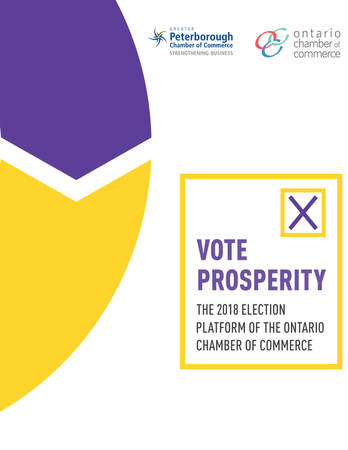 What do you do with the notes you gather at a conference, workshop or seminar? My approach has changed over the years; but, ultimately, I tend to find a way to highlight those spoken or power point gems that stood out for me. My latest technique is to draw a box around the sentence or quote. Why am I telling you this? Well, I attended a workshop hosted by the Ontario Chamber of Commerce in Toronto recently called “Capitalizing on Disruptive Change”. The content was top notch and while I was trying to figure out the best way to convey the messages from the four panels the light bulb went off… Here’s what I drew a box around. Panel 1: Leveraging the Capabilities and Strengths of the Four Generations at Work We, as a workforce, are not efficient at getting talent into entry level jobs and put too much weight on social capital – The panelist expressed concern that too much emphasis continues to be put on “who you know” rather than “what you, as an employee, would bring to the table”. By not being efficient at this for entry level jobs, businesses could be missing out on hiring talent that could propel their business forward. 80% of employers can’t find talent and 1 in 3 employees want to move on in the next five years – For me this expresses one of the more consistent issues about workforce. Business needs talent, but talent isn’t necessarily ready to settle down in one career and training for someone who isn’t interested in staying can strain a budget. Shaped by our generations – Historically, each of the generations in the workplace have been shaped by different world events, motivations, and how that generation was educated. Attribution role – What are employers and employees attributing behaviour to? If it’s a negative sentiment, e.g. laziness, is that the true attribution or is it that the employee needs specific instructions beyond the original? If the employer is viewed as restrictive is that the case or is there a disconnect between the employee understanding the process and the employers requirements as a business? $24B in productivity lost because of talent strategy – How do we build pathways so businesses can find the talent they need efficiently to reduce lost productivity? Panel 2: Positioning Artificial Intelligence (AI) and Machine Learning in the Ontario Context What’s the talent boundary? As a fledgling industry, what’s the equation where there are enough jobs in the AI field and students with required skills to meet those jobs? Students need to understand the linkages between problems before solutions – Students of AI and its possible applications need to be able to understand the why and not just the technical side. We want this to be consumable to the end user – The ultimate goal is to have AI augment the work of humans, not necessarily replace it. The content of jobs has changed – When thinking about the type of skills required for AI application, it’s not just about the technical needs but how to apply the learning. We are consistently asking people to think more and robots to do more. How can AI be implemented across sectors? The panelists saw AI as its own sector but with application in every other sector to help identify efficiencies and increase productivity. Panel 3: Empowering Women Entrepreneurs: Discussing Strategies to Ensure Equitable Access to Opportunities in the Disruptive Economy Mentorship and sponsorship are different – One is offering advice and guidance and the other is a specific commitment to helping someone with their career. Access to capital – Men and women ask for money differently and at different stages of their business development. Clarity of message – Whether you are asking for money, advice, or someone to become a customer, know your pitch inside and out, keep it short and deliver it with confidence. Redirect people to your strengths – What are those qualities about you that come easy; that standout? Highlight those and don’t dwell on the negative. Stay true to your work culture - Dr. Andressa Lacerda of Peterborough’s Noblegen Inc, one of the panelists, said when hiring they focus on people who buy into their work culture and belief system of their business. Panel 4: The Future of Ontario’s Digital Economy with Ontario’s Chief Digital Officer Build trust and confidence; deliver together – Hilary Hartley is Ontario’s Chief Digital Officer. She explained that her division is looking to deliver efficiencies across ministries using digital solutions. Her seven point plan is based on building trust and confidence within the government to deliver stellar service to the taxpayer. Common playbook – Hartley described how the health care sector in the US and the UK have started to develop a common set of rules on how to improve digital offerings and efficiencies. Think differently about solutions – Is developing a solution to a problem actually the best solution? Does the identified issue continue to be a necessity to getting the job done, determining results or desired outcome? Moonshots – What are those goals that you would reach for, all things being equal? It’s a question Google asks its employees and it struck me as good a question to ask within any organization. My final thought as I packed up my bag and headed back to Peterborough was that change is constant and while it can sometimes feel like we’ll never be able to keep up, how we advocate for and use what’s changing to propel our work and our talent forward is the key to success. The 2017 Peterborough Business Excellence Awards, sponsored by Bell, were handed out at the awards ceremony at Showplace Performance Centre on October 18th. The 14th annual ceremony was presented by the Greater Peterborough Chamber of Commerce, and is designed to publicly recognize and honour local businesses who have demonstrated a passion for excellence. In all, more than 50 businesses and individuals were profiled in 20 categories, with recipients announced live on stage (see the list below). The Peterborough Chamber of Commerce also announced its annual Business Citizen of the Year recipient at the awards ceremony. As the Chamber of Commerce is a Business-to-Business organization, the role that a nominee for the Business Citizen of the Year Award has had in the Business Community is extremely important. The Chamber of Commerce also recognizes the importance of volunteerism within the broader community. The 2017 recipient is Peter Blodgett! Peter joins a long list of Business Citizens of the Year, who have all made a significant contribution to the community. www.excellencepeterborough.ca 2017 Business Excellence Awards Finalists (listed alphabetically) Entrepreneurial Spirit (sponsored by Gauvreau & Associates Chartered Professional Accountants)
SKILLED TRADES (sponsored by Business Development Bank of Canada)
TOURISM (sponsored by BMO Financial Group)
HOSPITALITY (sponsored by Kawartha Credit Union)
MICRO BUSINESS – Fewer than 5 employees (sponsored by Darling Insurance & Realty Ltd.)
RETAIL – CHAIN/FRANCHISE (sponsored by RBC Royal Bank)
RETAIL – NON-CHAIN/NON-FRANCHISE (sponsored by The Peterborough Examiner)
NEWCOMER ENTREPRENEUR OF THE YEAR (sponsored by Fleming College)
CUSTOMER FIRST (sponsored by TD Bank Group)
LOCAL FOCUS (sponsored by Trent University)
INNOVATION/RESEARCH & DEVELOPMENT (sponsored by Innovation Cluster)
COMMERCIAL DEVELOPMENT OR RENOVATION (sponsored by City of Peterborough)
MARKETING & PROMOTION (sponsored by BDO Canada LLP)
ENVIRONMENTAL PRACTICES (sponsored by County of Peterborough)
NOT-FOR-PROFIT (sponsored by Community Foundation of Greater Peterborough)
EMPLOYER OF THE YEAR (sponsored by LLF Lawyers LLP)
4-UNDER-40 PROFILES (sponsored by Community Futures Peterborough) – RECIPIENTS!
STUDENT BUSINESS LEADERSHIP BURSARIES (sponsored by Peterborough & the Kawarthas Economic Development) – RECIPIENTS!
BUSINESS CITIZEN OF THE YEAR (sponsored by Nexicom)
 Let me start by saying that the Chamber of Commerce is fiercely non-partisan. We will openly like, or dislike any Government policy, no matter what party is in power. Policy, not Politics, is our mantra. In addition, we are very well represented, municipally, provincially and federally by our elected officials, including two cabinet ministers. Having established that, and given that this is an opinion piece; It feels like there is a disconnect between the business community and Government. It feels like there isn’t enough understanding of what it actually takes to start a business and have it be successful. To be fair, I believe I understand the thinking. On the proposed Federal Corporate Tax changes, the Federal Liberal Party was clear in its intentions during the election that brought them to power – to go after tax cheats. Fair enough, some have taken unfair advantage of the existing regulations. However the proposed reforms go so far, and so deep as to gather the majority of incorporated business owners under the tax cheat umbrella. To say that the typical small business owner has been deeply offended by this is an understatement. It appears that the Government has been listening and has finally started to soften its approach, though it remains to be seen what the end result will be. A more careful, evidence-based approach would have been better. Similarly, with the Provincial Governments Bill 148, I understand the Governments desire to raise all boats on the tide of a $15 minimum wage. The Government appears committed to implementing the most dramatic increase in minimum wage in Ontario’s history! Their response to the universal “too much, too fast” response from business has been to promise mitigation measures. They are promising to mitigate a crisis that they’ve created! There is growing evidence that the timeline is indeed too much too fast. The Keep Ontario Working Coalitions peer reviewed CANCEA Report, the Financial Accountability Office of Ontario Report, and the TD Economics Report, all warn of unintended consequences, some of them rather alarming. (These reports are all on our website.) The “tide” is starting to swamp local businesses with many of them already implementing their own mitigation strategies, including fewer hours, fewer jobs, and cancelled expansions. A more careful, evidence-based approach would have been better, tax measures and a basic income guarantee should be considered, and a five year implementation strategy is still an option that I hope the Government will take. This is small business week. I wonder how many people truly understand what it takes to create a job… Simply having an employee in the building costs roughly 50% more than that employee’s salary. There is the cost of the building, the utilities to run it, the multiple taxes, the cost of regulation compliance (let alone the fees for the privilege of complying), and this doesn’t even scratch the surface. Most small businesses operate on a profit margin of 10% or less. This means that for every dollar that goes into the cash register it costs the owner 90 cents. That left over dime is typically sunk back into the business for expansion, new equipment, building improvements, new employees, etc. When Government legislates a cost increase, when hydro rates go through the roof, when wages get a legislated increase, it leaves a business owner with very few options, and only 10 cents to solve the problem. Suffice it to say that, unless you’ve sat in the chair of a small business owner and faced the responsibility of mounting expenses, you shouldn’t judge, and if you are an elected official, you should make decisions based purely on evidence. policy, not politics. [email protected]  Recently, TransCanada Pipelines made the announcement they are abandoning the Energy East Pipeline project. It was a sad day for Canada, a missed opportunity to complete a significant nation building project, and partly the result of series of delays and changes in the regulatory requirements and process. The Energy East project would have not only meant construction jobs over the next decade, but jobs for continued operation and maintenance. In fact, for Ontario, it was forecast that the project would create 4,200 full time jobs during construction and sustain nearly 1,400 full time jobs when in operation. For Peterborough directly it meant 250 well paying jobs with potential for indirect jobs filtering throughout the local supply chain. The Minister of Natural Resources referred to the TransCanada decision as a “business decision”, and while true, it is far from the only reason. The federal government needs to recognize its role in the demise of this project as well. Energy East was subject to a series of changes to the National Energy Board process after an agreed upon process was in place. For Canada, Energy East meant energy independence, increased innovation in the oil and energy sector and the opportunity to be an international leader. Energy Independence: Oil from the west would have been shipped to eastern Canada for a variety of uses. Now with this project off the table, Canada will have to continue to source oil from other countries in the Middle East and have the product shipped across oceans. The reality is that Canada’s largest oil customer, the U.S., has been focused on securing its on own independence with significant investment in its own oil and gas sector over the past decade. Increased Innovation: Energy East was an opportunity for innovation in pipeline logistics, motors, and diagnostics. GE in Peterborough was to build the large motors to move the oil through the pipeline. To have the best and brightest minds working on such a project should have been an opportunity not to be missed, but embraced. International Leader: While there is no doubt opportunities exist with the current approved pipeline projects, Energy East, as a project, had the potential to take our expertise to the next level. It was our opportunity to show the world that Canada could successfully collaborate with our economic, First Nations, and environmental communities in five provinces on issues of jobs, pipeline safety, the environment, and duty to consult. With never-ending delays in the regulatory process, seemingly a lack of political will, and the impact of outside factors, such as the price of oil, it’s not surprising that TransCanada could no longer continue, however, it’s a loss that will be felt for generations. [email protected]  A double whammy or a one-two punch - that’s what businesses are facing in Ontario with two significant public policy changes at play provincially and federally. It’s a challenging time to be in business in Ontario with the potential impact and ripple effect of these changes creating a lot of uncertainty. Provincially, Bill 148 the Fair Workplaces, Better Jobs Act is forcing businesses to look at their business model and make tough decisions such as fewer hours, fewer jobs and consideration of automation. “Too much; too soon” has been the mantra from the business community throughout the summer, since the announcement of proposed sweeping labour and employee relations changes. But this response is not in a vacuum. There are three recent studies that are now part of the conversation and they present the same concerns as business owners. The latest updated report from the Ontario Chamber of Commerce and CANCEA shows that extending the time frame of the minimum wage increase over five years will result in 75% fewer jobs at risk. The CANCEA study also finds that Ontario’s 400,000 small businesses (those with less than 100 employees) are exposed to 46% of the increased costs associated with the Act. While the economic analysis indicates the province will see an economic boost of $11 billion in wage stimulus in the next two years, there will remain a $12 billion cost for business to absorb. A recent report from TD Economics says “the relatively rapid speed of the implementation and its timing within the economic cycle are two factors that will likely accentuate the negative hit to Ontario employment.” It goes on to say that they are expecting “a net reduction in jobs of around 80-90,000 positions by the end of the decade” and that “these estimated impacts could be mitigated by extending the implementation timeline.” The Financial Accountability Office has also weighed in on the impacts of Bill 148, raising some new points in the discussion:
Add to the commentary the multitude of remarks from businesses themselves and there is an overwhelming message of concern. From its own members, the Peterborough Chamber of Commerce gathered up 15 pages worth of comments and sent them to the Standing Committee on Finance and Economic Affairs. This document shows a consistent message from all sectors of the business community as to the impacts of the speed of implementation of Bill 148. “Small businesses are telling us the tools they have to work with are limited, and include fewer hours, fewer jobs, delayed expansions, and closing for the winter months,” says Stuart Harrison, President & CEO, Peterborough Chamber of Commerce. “Some have even speculated they’ll be forced out of business entirely…” Offsets for businesses, to help with the transition this legislation will require, are expected to be announced in the coming weeks. The hope is that these offsets, which our counterparts at the Ontario Chamber of Commerce have been speaking to government about, are offered using tools such as the tax system to make it easy for business to access and complete. Offsets in the form of grants will only add to the regulatory burden facing small businesses in our community. Add to this provincial legislation new proposed corporate tax changes at the federal level. These proposed tax changes present serious concerns for incorporated businesses in how passive income is dealt with, along with the ability to pass a business on to the next generation and income sprinkling. Both levels of government are creating a negative message about business. Considering the feedback from the business community, this is a dangerous gamble. With over 400,000 small businesses in Ontario alone this group is truly the backbone of our provincial and federal economy, creating jobs and investing in the social fabric of our communities. Understanding their needs and ability to adjust to regulatory burden, market pressures locally, provincially, nationally and internationally is key to finding a balance that works for everyone. To learn more: Peterborough Chamber Advocacy Page on Bill 148  Ontario’s Chamber Network Provides Recommendations To Drive Economic Development Into The Future PETERBOROUGH, Ont., Wednesday, October 11, 2017 – Today, the Peterborough Chamber of Commerce in partnership with the Ontario Chamber of Commerce (OCC) released Vote Prosperity, a platform and campaign outlining the Ontario business community’s priorities for the upcoming 2018 provincial election. Vote Prosperity provides a series of proactive recommendations that all of Ontario’s political parties should adopt to ensure growth for the province’s economy. Vote Prosperity Report “93% of Peterborough Chamber members are small business. They support working families in our local community and across the province, and that’s why candidates from every party in every community will want to become familiar with Vote Prosperity,” said Stuart Harrison, President & CEO, Peterborough Chamber of Commerce. “Ontario’s business community is prepared to be bold about making suggestions for ensuring future growth and with Vote Prosperity we are seeking to motivate our political leaders to follow.” In releasing the platform today, the Ontario Chamber Network will strengthen the political narrative between now and the 2018 election. Vote Prosperity is based on four aspirational pillars for Ontario:
The platform provides 18 unique recommendations that will help bolster Ontario’s long-term economic future, while also addressing the pressing issues Ontario currently faces. Some of the 18 recommendations in Vote Prosperity include:
“We are glad to see our work around apprenticeship ratios be recognized in this report,” adds Harrison. “ Our members have been telling us that this is an area for improvement, so to have it be part of the election dialogue is a good step forward.” Over the coming months, ahead of the 2018 election, the Ontario Chamber Network will be voicing the concerns and recommendations outlined in Vote Prosperity with political parties and local MPPs and candidates. During the election, local chambers will be hosting debates where Vote Prosperity will be the primary focus of discussion. Peterborough Chamber: Provincial Election 2018: Vote Prosperity Advocacy Page -30- The Greater Peterborough Chamber of Commerce is a member-based organization. Our main focus is to channel the collective strength of the business community to improve the economy. #strengtheningbusiness The Ontario Chamber of Commerce is Ontario’s independent, non-partisan business advocate. MEDIA CONTACT: Sandra Dueck Policy Analyst/Communications Specialist Peterborough Chamber of Commerce 705.748.9771 x 215 [email protected]  The Peterborough Chamber of Commerce has made a submission to Finance Canada and Minister Bill Morneau on proposed federal tax changes. "Much of the document simply provides the raw feedback from our small business members. The photos on the front cover depict the significant number of people who signed our #protectgrowth card in a couple of hours [at our LoveLocal Expo]. We're simply asking [the federal government] to slow down and get this right,"adds Stuart Harrison, President & CEO, Peterborough Chamber of Commerce. These proposed measures will change the rules that businesses have been following for almost half a century. The current rules have resulted in business growth and economic success for Canada while recognizing the risk entrepreneurs take in starting a business. In Peterborough, City and County, the entrepreneurial culture is being nurtured and is growing. The Peterborough Chamber of Commerce membership is made up of close to 900 businesses, 93% of which are considered small business. To put these rules in place will crush opportunities and punish entrepreneurs. In a recent article by the Canadian Chamber of Commerce, Senior Director of Economic, Financial & Tax Policy Hendrik Brakel writes, “Nobody supports tax evasion or loopholes. But these changes will punish legitimate businesses. And, they come after the government cancelled reductions in the small business tax rate, tightened rules on partnerships and started taxing work in progress. That’s on top of new carbon taxes, raised CPP premiums and an increase in the EI rate.” The government has expressed an interest in seeing fairness in the tax system, but treating entrepreneurs and employees as the same does not accomplish this goal. Unlike employees, business owners do not receive pensions, health benefits, or vacation pay. Business owners invest their own money, pledge their own assets, and in many cases are making use of the current tax system to ensure they have money invested in the business in the event of an economic downturn and to plan for their retirement. The current system in Canada is not unusual; the Canadian Chamber of Commerce points out that every advanced economy in the world has a system that allows business to accumulate and invest after-tax retained earnings. The government also says it wants to crackdown on “high income individuals,” but these rule changes would target all incorporated businesses, many of which are restaurants, retail shops, farms and consultancies and are the backbone of our local economy. Many small business owners have indicated that if these rules pass in their current form, they will shut down their business, seek full time employment positions, or move their business out of Canada. The Peterborough Chamber and its membership encourage the federal government to take into consideration the concerns presented in the document. Read the full document The Canadian Chamber of Commerce has also created a campaign and petition called ProtectGrowth. For more information about this campaign, and how you can speak up, visit protectgrowth.ca. Fill Out the Business Confidence Survey and help us Take the Business Information to Queen's Park10/4/2017
The Peterborough Chamber of Commerce and Ontario Chamber Network are looking for members to help shape our advocacy by completing the Business Confidence Survey.
Members can share their insights on the state of the Ontario economy and their own business; recent government policy on issues such as cap and trade, minimum wage, and electricity; and the impact on business. The survey also delves into the factors of business competitiveness and the impact of the fiscal health of the province. It wraps up by asking what the most pressing issues of the provincial election will be for business owners. The Ontario Chamber Network is committed to ensuring government understands the issues impacting Ontario business in this province. That’s why we need your help in ensuring the voice of business is heard loud and clear at Queen’s Park. Use this link and in five minutes let the government know what’s important to you. |
AuthorThe Peterborough and the Kawarthas Chamber of Commerce acts as a catalyst to enhance business growth, opportunity, innovation, partnerships and a diverse business community. Archives
June 2024
Categories |
|
Copyright Greater Peterborough Chamber of Commerce. All rights reserved.
175 George Street North, Peterborough, ON, K9J 3G6 Phone: (705) 748-9771 | (705) 743-2331 Home | Calendar | Site Map | Privacy | Accessibility |
